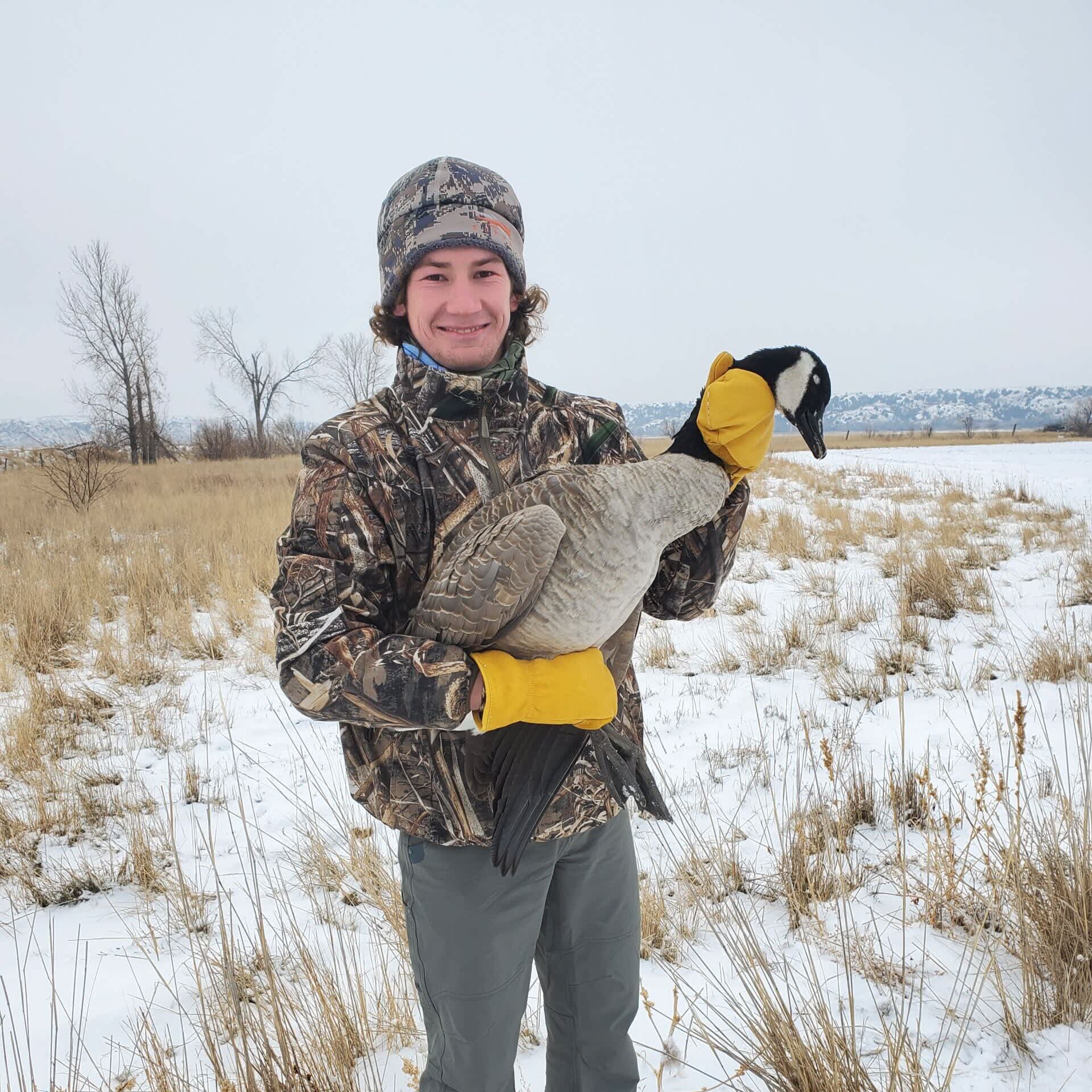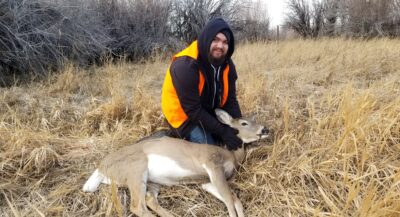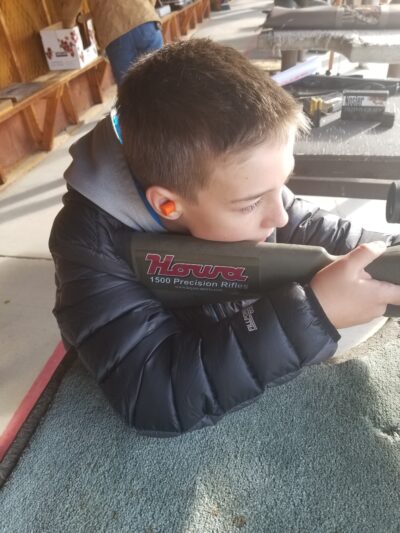What You Need to Start Mentoring New Hunters
Everett Headley 11.15.23

Hunting traditions continue to be strongly maintained through familial connections, but for those who were raised outside of hunting it can be difficult to find help. Mentors are needed to fill a critical role in securing hunting’s future participation. Recruitment, retention, and retainment (R3) only works if there are those within hunting already willing to help out to newcomers. And while it can seem somewhat peculiar to take someone new into the woods, it is incredibly rewarding to see firsthand their experience. What you need to be successful is probably far less than you think. Organizations like the First Hunt Foundation make it easy to connect you to the new hunter, all you need is some help on how to best navigate this new relationship.
Keep an openness to share your wisdom of the woods.
Oftentimes those who are new to hunting are also new to outdoor recreation. The appeal and draw is unmistakable to those of us with seasons under our belt, but they can be daunting for someone who all they know of the outdoors came from a survival show. They will rely on your knowledge to stay safe and return home.

Carry a willingness to teach.
The default dynamic will be for you to guide and them to follow. Every step can be an opportunity to point out elements for them to keep a weather eye. What you as a mentor might take for granted, can be completely unknown such as the direction a deer track is headed. Hopefully the state’s hunter education program has helped build a foundation for you to build on, but don’t miss the chance to point out something and offer a thought on its significance. Remember to be gentle in your correction and offer suggestions instead of direct criticisms that might just discourage further hunting.
Prepare for your patience to be challenged.
If you have children of your own, you’ll likely already be ahead of the curve on this one. If not, just know that learning includes making mistakes and learning from them. Instead of allowing it to negatively impact the adventure, remember we were all there once. Focus on the priorities: for a new hunter it is more about gaining experience in the field than it is about harvesting. When things get tough, slow down and take a break. Accept that things will likely not go as planned and react with an attitude of making the best of it.

Stay serious about safety.
Again, hopefully a hunter education program has already drilled home the four gun safety laws, but you are there to help reinforce them. Using your own experiences, you can help show the right way to safely be afield. There is a responsibility of a good mentor to be alert to the point of hypervigilance and step in as needed. A new hunter doesn’t know what they don’t know and requires a mentor to fill in the gaps. Real world experiences such as skylined animals or precarious situations are good for reviewing safety principles. Make the most of every one to really instill good safety habits.
Follow through to the table.
Hunting’s earliest beginnings were about food and the satisfaction of providing for your family. Cooking wild game can require a more delicate and knowledgeable approach than something store bought. Sharing a recipe or technique can be a way to bring together a group to enjoy the meal and its story.
Find some easier access.
This doesn’t mean making the hunt as easy as possible. Many areas are in need of help with population management. This usually means harvesting females and a high chance at a shot. Much like fishing for bluegill at the end of dock, these hunts can be enough to get a full experience of hunting in a way that lowers many barriers. Once “blooded,” more strenuous pursuits can be added.
Utilize mentoring groups.
Some groups like the First Hunt Foundation offer liability insurance to you at no additional charge. They also provide training with best practices. If you want to take out a hunter but are not sure where to start, they can connect you with a mentee. There can also be opportunities to join on trips for new hunters in some places that otherwise might be closed.
The benefits of bringing a new hunter into the community are more than just one more person afield. It is another license and gear bought adding to the Pittman-Robertson fund for conservation. They are a new advocate for the cause with firsthand experience of what hunting really entails. And if you’re lucky, it might be a new hunting partner you can help find success.

